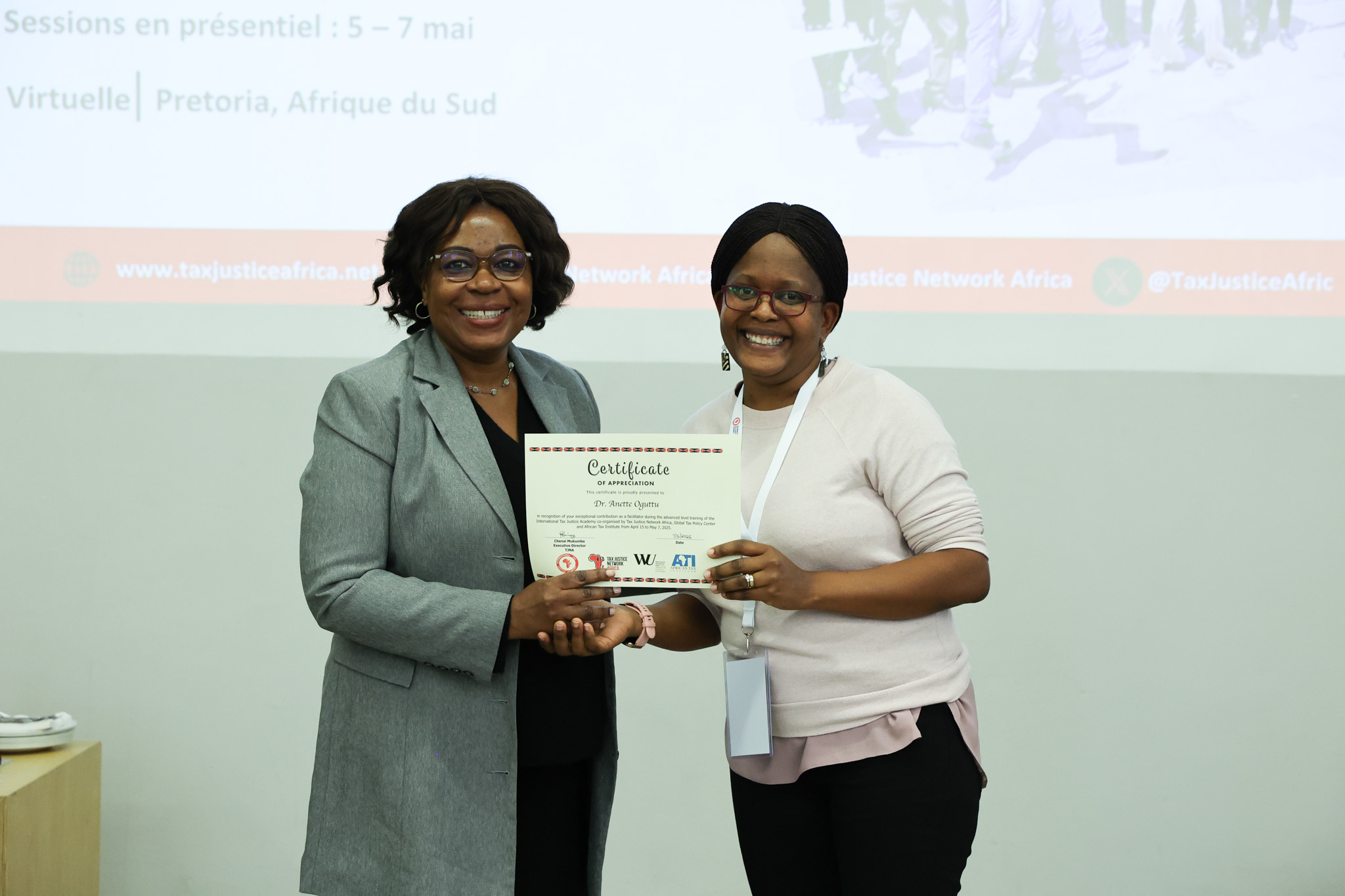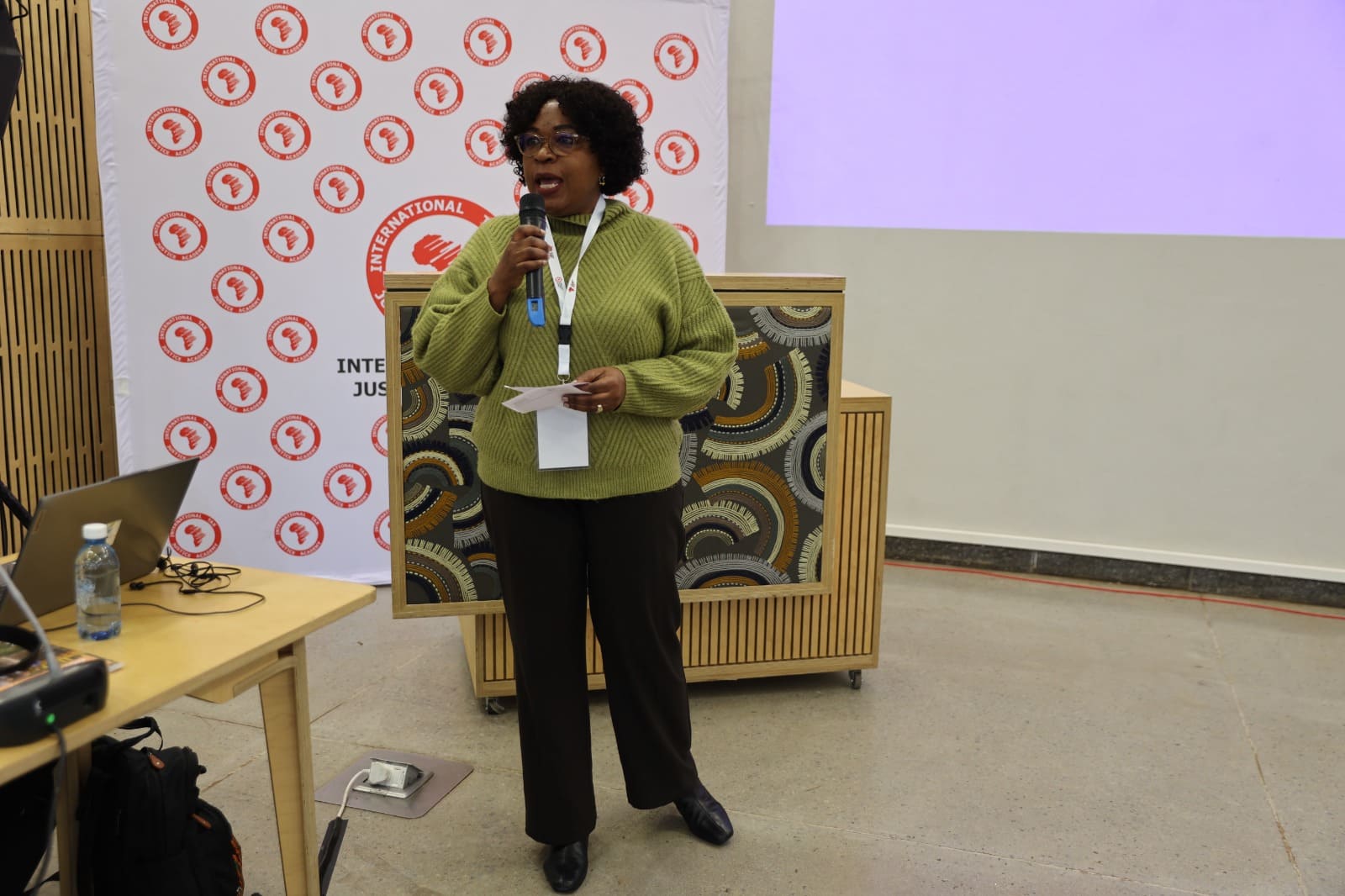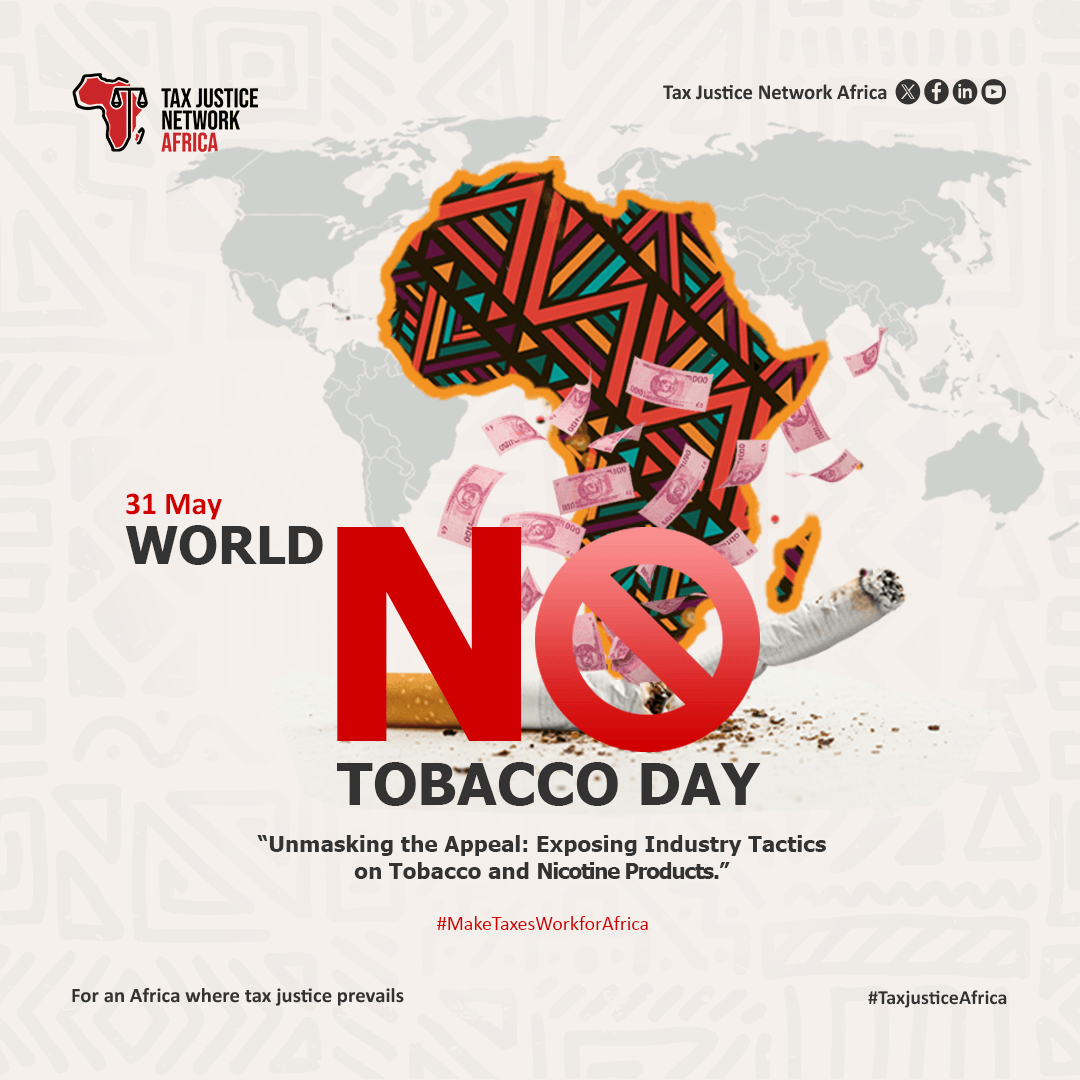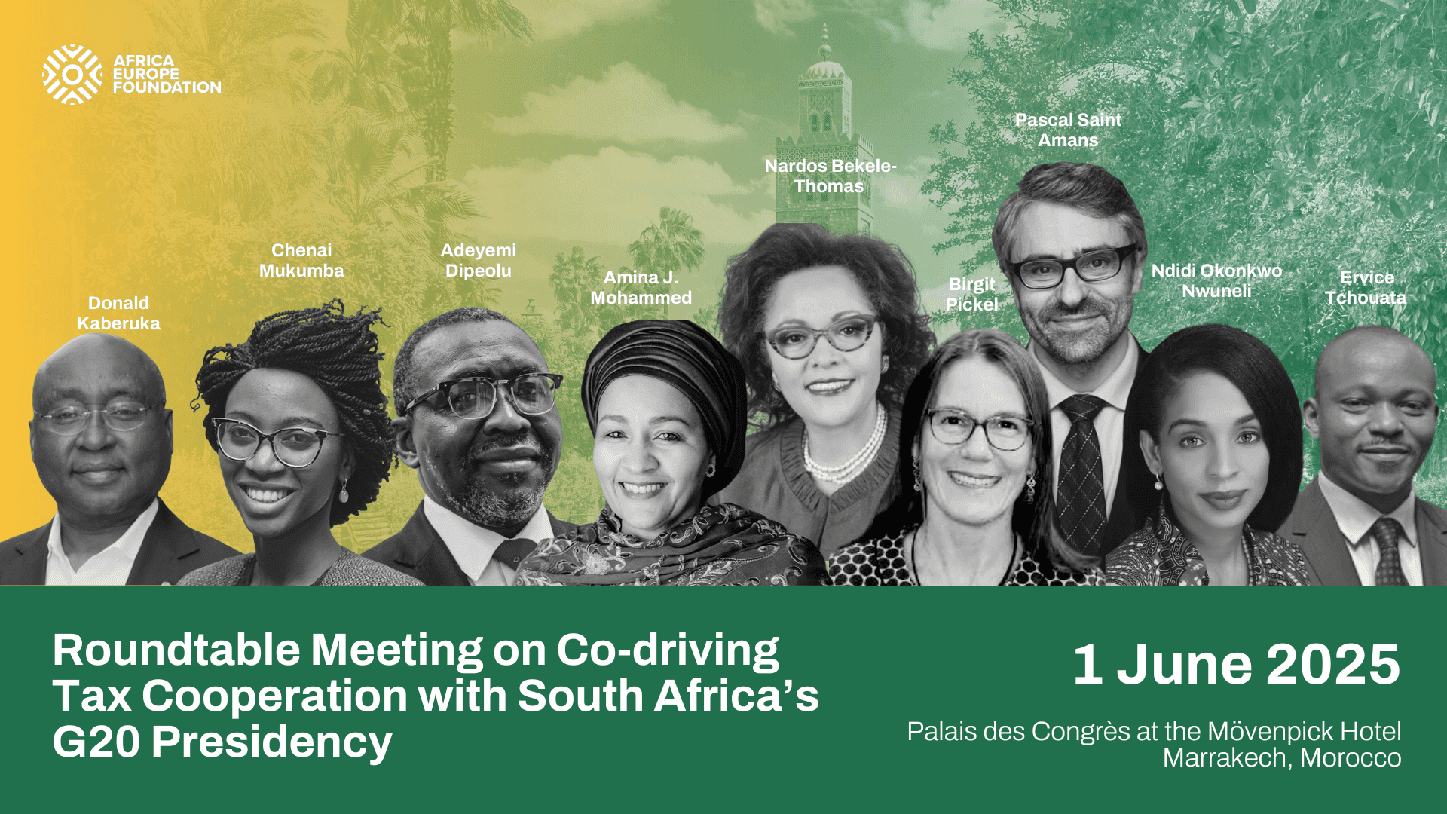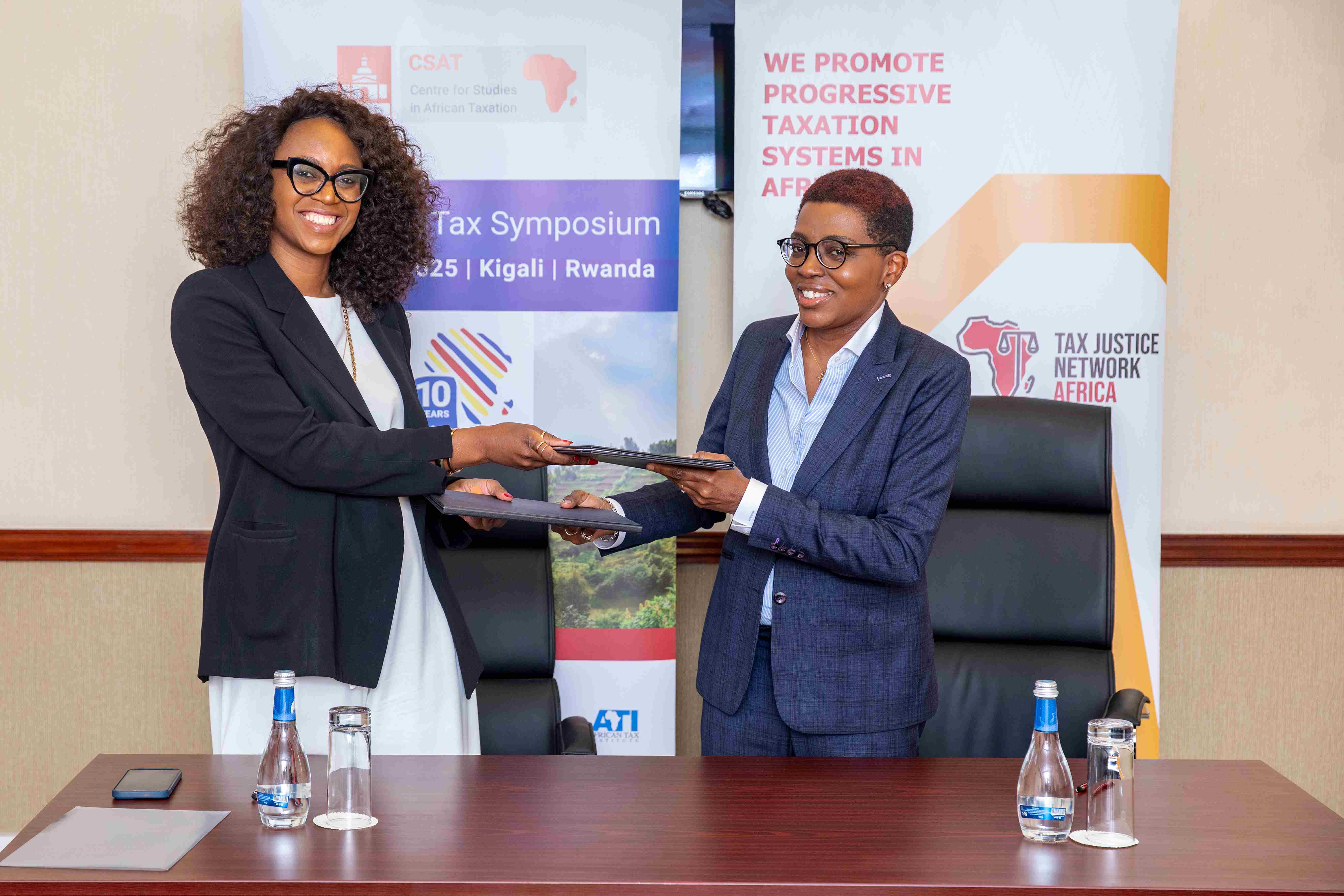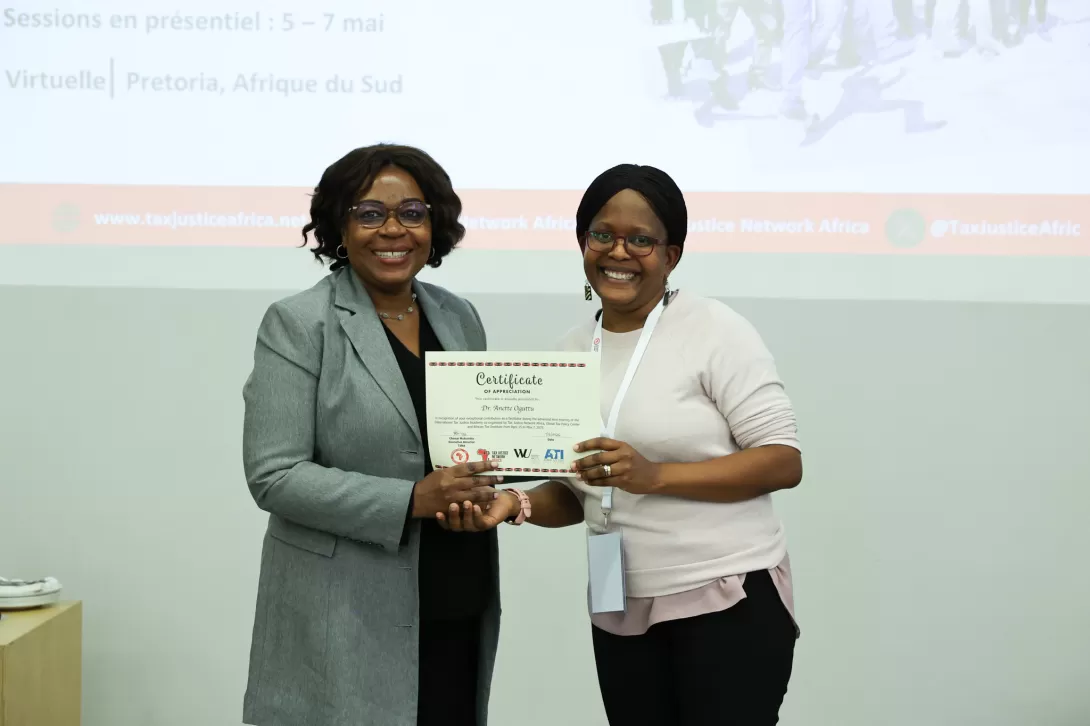
From foundational principles in 2023 to advanced strategies in 2025, the International Tax Justice Academy (ITJA) advanced-level training marked the final chapter of a three-tier capacity-building journey that began with a mission to elevate African tax justice voices.
Organised by Tax Justice Network Africa (TJNA), in collaboration with the Global Tax Policy Centre (GTPC) and the African Tax Institute (ATI), under the theme: Building the Next Generation of Tax Justice Champions, the advanced-level training concluded in Pretoria, South Africa, following a blend of virtual and in-person sessions.
The programme brought together tax justice actors from across Africa, including civil society organisations, academia, media, tax professionals, and policymakers to deepen their expertise and sharpen their capacity for policy influence at both regional and global levels.
While giving her opening remarks, TJNA’s Partnerships and Institutional Learning manager, Nelly Busingye, reflected on the journey that began in 2023 and commended the participants and partners for their unwavering commitment.
“We have come a long way, starting with reconceptualizing ITJA from the foundational level in 2023. Over time, the training content has evolved, and strategic partnerships have played a critical role by bringing together diverse expertise and resources. Our expectations are that participants can make a mark in amplifying Africa’s voices when it comes to tax justice," she stated.
The ITJA 2025 edition marked the culmination of a transformative journey. It offered participants a platform to consolidate and apply the knowledge gained throughout the three-tier programme. This final phase enriched the tax justice discourse by reflecting on lessons from previous sessions, bridging theory with current policy realities to drive relevant action, and fostering a collaborative space for peer learning, networking, and shared advocacy, ultimately strengthening a growing community of tax justice champions across the continent.
Speaking during the training, Africa Tax Institute Director, at the University of Pretoria, Dr. Annet Oguttu, took participants through the history of international tax coordination, highlighting Africa’s historical exclusion and the need for equitable representation in global tax governance.
"There are various international tax bodies that have taken on quasi-international roles, namely the Organization for Economic Cooperation and Development (OECD), along with other United Nations (UN) agencies that have gained influence in developing international tax laws. This influence has raised concerns leading to the establishment of the UN Framework Convention, which promotes more inclusive international tax cooperation," said Dr. Oguttu.
In a continent where the informal sector accounts for a significant share of economic activity, the session on Informal Sector Taxation was particularly relevant. It opened the floor to discussions on real-life scenarios and case studies, exploring the pitfalls that prevent fair allocation of income and expenditure, and the multifaceted role economies play in the informal sector.
In his presentation, ATI lecturer, Mr. Bernd Schlenther stated that tax administrations must employ strategies that can effectively expand the tax base without unduly burdening low-income individuals.
"The key to creating a balanced system that encourages compliance, provides clear benefits, and focuses on capturing revenue from those with significant economic activity is not penalising those struggling to make a living," Mr.Schlenther echoed.
A major highlight of the programme was the learning visit to the African Tax Administration Forum (ATAF). Participants gained first-hand insight into ATAF’s pivotal role in shaping regional and global tax policies, its extensive work in capacity building, and its commitment to fostering regional cooperation. Crucially, the visit illuminated the significant opportunities for collaboration between civil society, academia, the media, and tax administrators.
In her remarks, ATAF Strategic Partnerships Manager, Ms. Leila Kituyi, elaborated on ATAF’s strategic partnerships and their direct engagement with the UN Tax Convention process.
“ATAF supports the UN Tax Convention efforts through an inclusive approach and effective governance. We also participate in various UN committees to develop recommended strategies and legislative frameworks. Additionally, we play a crucial role in representing African perspectives at the Organization for Economic Cooperation and Development (OECD) and ensuring that Africa’s voice is heard in global reforms," stated Ms. Kituyi, speaking in the session.
The final day of the training prominently featured a strong focus on generating evidence for advocacy, emphasising the critical role of robust data in shaping impactful campaigns. Participants explored practical tools and approaches used by civil society organisations (CSOs) to track policy implementation at the national level, including a deep dive into the Anti-IFFs Policy Tracker, TJNA’s flagship policy monitoring tool.
TJNA Policy Officer, Francis Kairu, demonstrated how countries can leverage this tool to better understand and track tax-related illicit financial flows (IFFs).
"By using the policy tracker, countries can develop evidence-based arguments on how IFFs increase inequalities and income disparities, and propose better tax policy recommendations," stated Mr. Kairu.
Speaking at the end of the training, Juliana Taiwo, Deputy News Editor at The Sun Nigeria, reflected on her personal growth through the programme.
“Before ITJA, I knew little about tax justice. After completing all three levels—foundational, intermediate, and advanced I now plan to launch a podcast dedicated to tax justice conversations,” Ms.Taiwo shared.
In closing, TJNA’s Capacity Building Coordinator, Geoffrey Sirima, closed the training by reaffirming TJNA’s commitment to growing a well-equipped and influential tax justice movement.
“This advanced training is not just a conclusion, it’s a beginning for many of you to step into spaces of influence, advocate for tax justice, and help shape Africa’s fiscal future,” said Mr Sirima.
The ITJA advanced-level training not only marked the completion of a three-year capacity-building journey but also reaffirmed TJNA’s commitment to equipping African actors with the tools, knowledge, and networks needed to influence tax policy and challenge global inequalities.
Related resources
For more information about the International Tax Justice Academy, please reach out to gsirima[@]taxjusticeafrica.net

